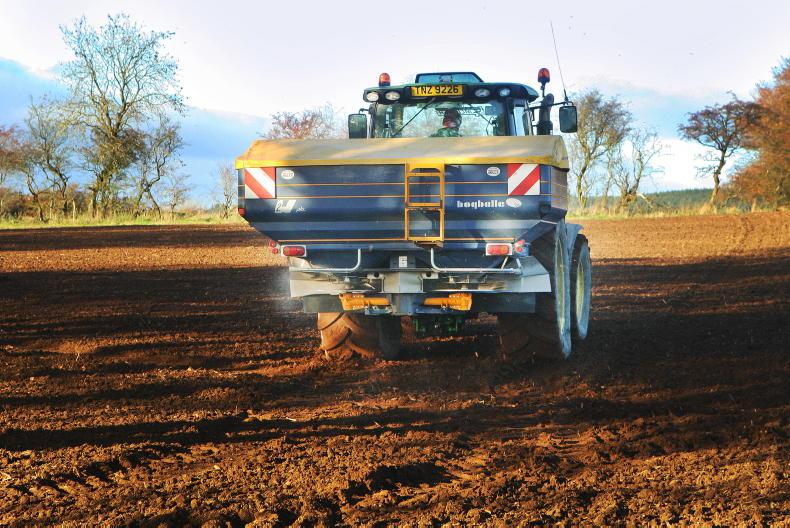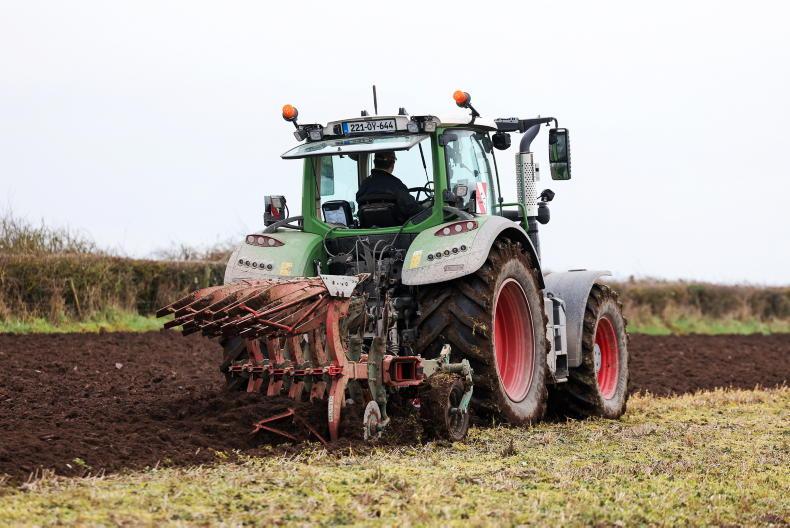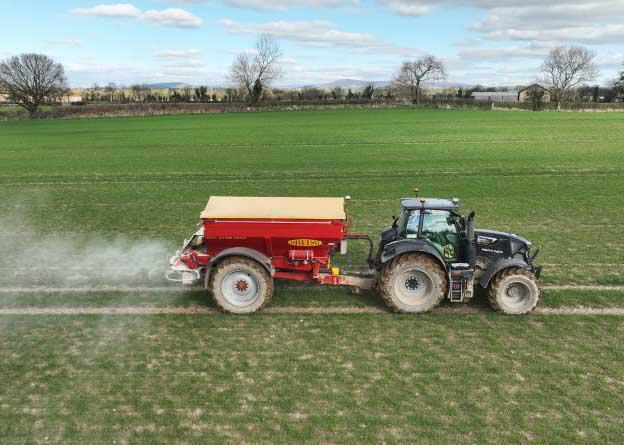Input costs continue to spiral out of control, with quotes for new stocks of nitrogen (N) from next Monday onwards in excess of £900/t.
Earlier this week CAN was available at £600/t, with 25-5-5 being purchased for around £650/t to £670/t.
However, by midweek, there were reports of some merchants and manufacturers pulling price lists and reneging on deals.
The escalating costs have prompted the Ulster Farmers’ Union (UFU) to call on DAERA to establish a NI taskforce to address the impact that Russia’s invasion in Ukraine is having on global fertiliser, feed and energy supplies.
“Input costs have jumped to eye-watering levels over the last number of days and are continuing to skyrocket,” commented UFU president Victor Chestnutt.
Since 1 January, red diesel has rocketed by 55p/l
He added that government must act and put in place contingency plans accompanied by action to support farmers, while also looking at whether regulations could be eased in some areas.
Diesel
Similar to fertiliser, red diesel has surged to record highs. On Wednesday, quotes hovered around 120p/l, excluding VAT, a rise of 35p/l in one week, with further rises likely by the weekend.
Since 1 January, red diesel has rocketed by 55p/l and currently sits at a level more common for derv. Twelve months ago, diesel cost just over 50p/l.
Such is the volatility around supply, farmers currently face a cap on the volume that can be purchased as distributors look to stretch reserves.
Feed
While feed mills generally waived a price increase on 1 March, this respite has been short-lived.
Livestock rations look set to incur a £10 to £15/t increase next week, with a similar hike for April.
Wheat is costing close on £360/t
With the price revisions in place, beef rations will exceed £300/t and dairy rations crossing the £350/t threshold.
Imports of feed barley hit £390/t earlier this week and while it did ease again, prices are only currently available on application to purchase. It is a similar scenario for maize. Wheat is costing close on £360/t.
Market prices
The unprecedented lift in costs is not being directly matched by output prices, although they are continuing to move in a positive direction.
Beef prices have edged upwards, with base quotes up 10p/kg this week to 404p/kg, the first meaningful increase in base quotes since 2021.
Price deals are in the region of 420p/kg, up 10p to 12p/kg since late February. Hoggets are also up 5p to 10p/kg, with 565p to 570p/kg being paid.
Milk prices will be set next week and processors are under pressure to implement a significant increase to base prices to keep in line with rising costs on farm.
Read more
National fodder and food security committee set up
Beef quotes keep moving on up
Input costs continue to spiral out of control, with quotes for new stocks of nitrogen (N) from next Monday onwards in excess of £900/t.
Earlier this week CAN was available at £600/t, with 25-5-5 being purchased for around £650/t to £670/t.
However, by midweek, there were reports of some merchants and manufacturers pulling price lists and reneging on deals.
The escalating costs have prompted the Ulster Farmers’ Union (UFU) to call on DAERA to establish a NI taskforce to address the impact that Russia’s invasion in Ukraine is having on global fertiliser, feed and energy supplies.
“Input costs have jumped to eye-watering levels over the last number of days and are continuing to skyrocket,” commented UFU president Victor Chestnutt.
Since 1 January, red diesel has rocketed by 55p/l
He added that government must act and put in place contingency plans accompanied by action to support farmers, while also looking at whether regulations could be eased in some areas.
Diesel
Similar to fertiliser, red diesel has surged to record highs. On Wednesday, quotes hovered around 120p/l, excluding VAT, a rise of 35p/l in one week, with further rises likely by the weekend.
Since 1 January, red diesel has rocketed by 55p/l and currently sits at a level more common for derv. Twelve months ago, diesel cost just over 50p/l.
Such is the volatility around supply, farmers currently face a cap on the volume that can be purchased as distributors look to stretch reserves.
Feed
While feed mills generally waived a price increase on 1 March, this respite has been short-lived.
Livestock rations look set to incur a £10 to £15/t increase next week, with a similar hike for April.
Wheat is costing close on £360/t
With the price revisions in place, beef rations will exceed £300/t and dairy rations crossing the £350/t threshold.
Imports of feed barley hit £390/t earlier this week and while it did ease again, prices are only currently available on application to purchase. It is a similar scenario for maize. Wheat is costing close on £360/t.
Market prices
The unprecedented lift in costs is not being directly matched by output prices, although they are continuing to move in a positive direction.
Beef prices have edged upwards, with base quotes up 10p/kg this week to 404p/kg, the first meaningful increase in base quotes since 2021.
Price deals are in the region of 420p/kg, up 10p to 12p/kg since late February. Hoggets are also up 5p to 10p/kg, with 565p to 570p/kg being paid.
Milk prices will be set next week and processors are under pressure to implement a significant increase to base prices to keep in line with rising costs on farm.
Read more
National fodder and food security committee set up
Beef quotes keep moving on up









SHARING OPTIONS